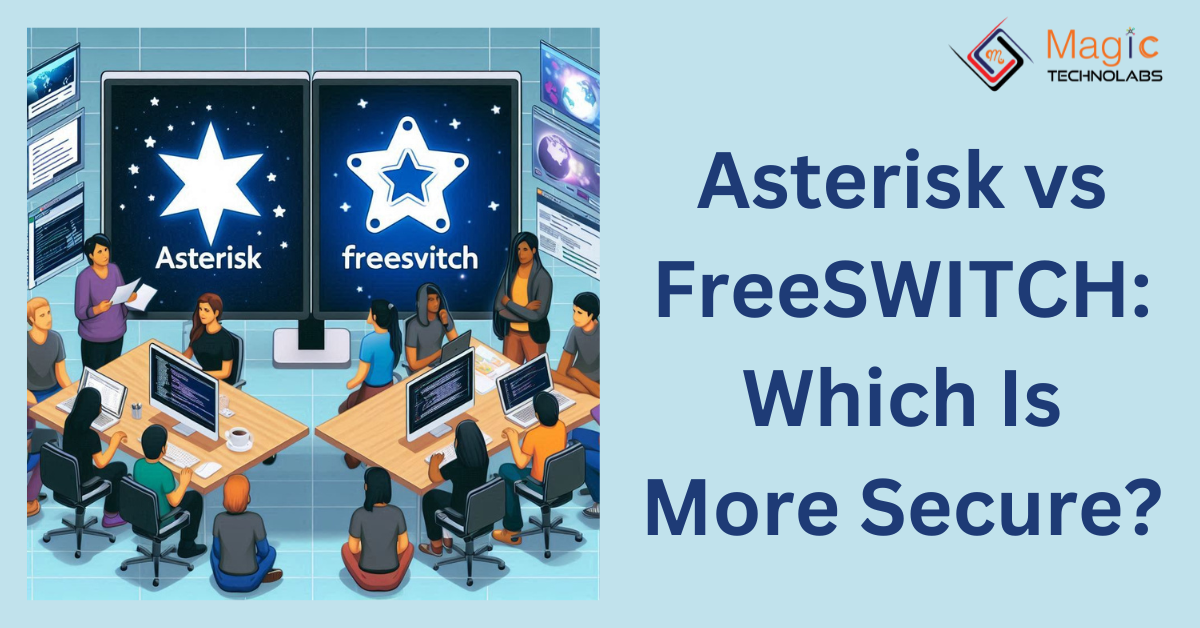Asterisk and FreeSWITCH. All provide strong security, but with different strategies for securing your VoIP calls.
Asterisk: The Battle-Tested Veteran
Asterisk, the veteran of the VoIP domain, has been around for a while. This maturity has enabled it to establish a robust security architecture. Here's what makes Asterisk a reliable choice:
Community-Driven Security: An evolving and engaged community continuously discovers and repairs vulnerabilities.
Mature Codebase: A well-established codebase with fewer security risks.
Strong Security Features: Offers a range of security features like IP whitelisting, encryption, and authentication mechanisms.
Regular Security Audits: It is subjected to routine security reviews in an attempt to find and correct vulnerabilities.
FreeSWITCH: The Agile Contender
Agile newcomer, FreeSWITCH, has achieved rapid success thanks to its flexibility and modern structure. It prioritizes security from the ground up.
Modern Architecture: Secured, based on modern protocols and encryption techniques.
Rapid Development: A more active development community ensures timely security updates.
Granular Security Control: Provides fine-grained control over security properties, thus enabling selective protection.
Strong Encryption: Supports various encryption algorithms to protect sensitive data.
Which One is More Secure?
Both Asterisk and FreeSWITCH have the potential to be very secure if appropriately configured and managed. The choice ultimately depends on your specific needs and expertise:
Asterisk: Best suited for users that focus on an established platform, with big community and a traditional PBX features orientation.
FreeSWITCH: Well suited for those looking for a next generation platform with high end capabilities and an emphasis on flexibility and modularity.
No matter what, below are some key security precautions to protect your VoIP system.
Keep Software Updated: Update your VoIP software, and its firmware, at least on a regular basis to apply security patches for discovered vulnerabilities.
Use Strong Passwords: Create strong, unique passwords for all administrative accounts.
Enable Encryption: Encrypt sensitive information being transmitted over the networks.
Monitor Network Traffic: Keep an eye on network traffic for suspicious activity.
Implement Firewalls: Use firewalls to protect your network from unauthorized access.
Stay Informed: Keep abreast of the ever-evolving security threats and recommendations.
By abiding to these guidelines and selecting the correct platform, it is possible to guarantee the safety of your VoIP communications.
















